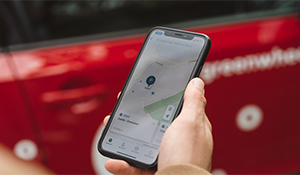Businesses currently trading with the EU and intending to continue to trade with the EU going forward need to be making changes now.
Brexit - top 10 things to consider before 31 December 2020
Businesses currently trading with the EU and intending to continue to trade with the EU going forward need to be making changes now. Time is running out to make the necessary preparations. Below is a list of the top 10 issues that must be addressed by the end of the year to avoid potential disruption from 1 January 2021
- Importing goods into the UK from the EU. Import customs declarations are required and these are complicated to complete and submit. Procedures need to be implemented to deal with imports. Consider postponed accounting, getting a deferment account, using an import agent.
- EORI number. Has the business automatically received an GB EORI number? If not, apply for one ASAP. Businesses may also need an EU EORI as well.
- Exports of goods to the EU. All movements of goods to the EU will become exports for a UK supplier and imports for the EU customer. Export declarations are required. Have contracts been checked to make sure UK entity is not required to VAT register in the customer’s Member State (ie goods shipped DDP).
- Movements of goods and keeping stocks in the EU. Have the physical movements of any goods in the EU been mapped? Have any overseas VAT registration numbers been applied for and tax representatives been appointed (where applicable)? This process should be completed by 31 December 2020 to avoid the imposition of penalties and to prevent goods being held at the EU customs border
- Distances sales to the UK via online marketplaces. If the consignment is less than £135 and the marketplace facilitates the sale to a private/non-business customer (B2C) then the marketplace is the deemed seller. Marketplaces need to take action to make sure they are VAT compliant from 1 January 2021.
- Trading with Northern Ireland. Systems need to be implemented to deal with trading in or with Northern Ireland as different rules will apply under the Northern Ireland Protocol
- Intrastat. An Arrivals Intrastat is required for movements of goods from EU member states to the UK.
- Services. The UK will become a third country and cannot take advantage of any EU simplifications. Use and enjoyment provisions apply to certain services supplied by non-EU countries. Have VAT registration numbers been applied for where necessary?
- UK Union Mini-One-Stop-Shop (MOSS). UK businesses that are registered under the Union MOSS in the UK will need to register for the non-Union MOSS in an EU member state with effect from 1 January 2021 if they do not have an EU establishment.
- Accounting and tax engine software. Existing accounting software and tax engines will need to be amended to reflect the fact that the UK is no longer a member state. Any impact on Making Tax Digital (MTD) need to be addressed to ensure that VAT returns and other documents are accurate.
The TolleyGuidance - Brexit - indirect tax action plan could help with taking the necessary steps to prepare for 1 January 2021.
Discover our core products
Request a quote for Tolley’s Tax Digest
* denotes a required field



